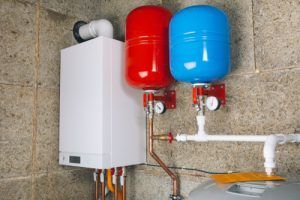Dealing with the Primary Water Heater Urgencies
Dealing with the Primary Water Heater Urgencies
Blog Article
They are making a few great points relating to Common Hot Water Heater Problems overall in this content down the page.

A hot water heater is just one of the most important standard home appliances that can be found in a residence. With water heaters, you do not need to experience the anxiety of heating water manually each time there is a demand to take a bath, do the laundry, or the recipes. There is constantly an opportunity that your water heater would act up as with many mechanical gadgets.
It is necessary to keep in mind any little malfunction and tackle it rapidly before points get out of hand. Many times, your hot water heater starts to malfunction when there is an accumulation of sediments as a result of constant usage. As a preventative measure, routine flushing of your hot water heater is suggested to prevent debris buildup as well as avoid useful failure.
Common water heater emergency situations and just how to handle them
Leaking water heater storage tank.
A leaking container could be an indicator of rust. It could trigger damage to the floor, wall surface and electric devices around it. You might also go to risk of having your home flooded. In this circumstance, you need to turn off your water heater, enable it to cool, and also thoroughly try to find the resource of the trouble. Sometimes, all you require to do is to tighten up a couple of screws or pipeline links in cases of small leakages. Yet if this does not function as well as the leak continues, you may need to employ the solutions of a specialist for a proper replacement.
Fluctuating water temperature.
Your hot water heater can begin producing water of different temperatures typically ice cool or hot warm. In this circumstance, the first thing you do is to ensure that the temperature is readied to the wanted degree. If after doing this, the water temperature level keeps altering during showers or various other tasks, you may have a defective thermostat. There could be a need to replace either the heating or the thermostat unit of your water heater.
Insufficient warm water
It might be that the water heating system can't sustain the hot water need for your home. You could upgrade your water heating system to one with a bigger capacity.
Blemished or smelly water
When this takes place, you require to recognize if the problem is from the container or the water resource. If there is no amusing smell when you run chilly water, after that you are particular that it is your water heater that is malfunctioning. The odiferous water can be caused by rust or the build-up of germs or debris in the water heating unit container.
Verdict
Some homeowners disregard little warning and minor faults in their water heater unit. This just brings about more damages as well as a possible complete breakdown of your device. You need to take care of your water heater faults as quickly as they come up to stay clear of even more expenses and also unnecessary emergency troubles.
With water heating systems, you don't require to go with the stress of home heating water by hand every time there is a requirement to take a bathroom, do the laundry, or the recipes. Your water heater might begin producing water of various temperature levels typically ice hot or chilly hot. It may be that the water heater can't support the hot water demand for your apartment. If there is no funny odor when you run chilly water, after that you are particular that it is your water heater that is malfunctioning. The odiferous water can be created by corrosion or the buildup of microorganisms or debris in the water heating system container.
Common Water Heater Issues and What You Should Do
What Type of Water Heater Do You Have?
Before we begin it’s first important that you identify the type of water heater you have on your property. There are two main types of water heaters out there: conventional and high efficiency.
Both of these types of products typically use either gas or electricity to heat power. There are also solar water heaters that use a thermal collector on the roof or yard to heat the water.
While these models are not as common, they can cut heating costs in half. In this article, we will focus on conventional and high efficiency.
How Do My Electric and Gas Water Heater Work?
Though they look similar, electric and gas water heaters work very differently. It’s important to know their basic function because often problems can be specific to the heating source.
In the electric model, a thermostat on the side of the machine detects the temperature of the water in the tank. When the temperature needs to rise electricity flows to a heating element suspended in the water.
Gas models also use a thermostat device — typically with a mercury sensor at the tip and an additional sensor called a thermocouple. The thermocouple detects whether the pilot light is on and controls the flow of gas.
When the thermostat drops below the appropriate level gas is released which becomes ignited by the pilot light. The flame heats the bottom of the water tank which causes hot water to rise and cold water to drop.
This natural circulation continues until the water reaches the desired temperature. Then, the thermostat triggers the gas control valve to shut off the flow of gas.
What Are the Most Common Issues and How Do You Fix Them?
https://happyhiller.com/blog/common-water-heater-issues-and-what-you-should-do/

I stumbled upon that blog entry about Is Your Water Heater Leaking? while doing a lookup on the internet. Sharing is caring. Helping others is fun. Thank you for going through it.
Instant fix? Dial! Report this page